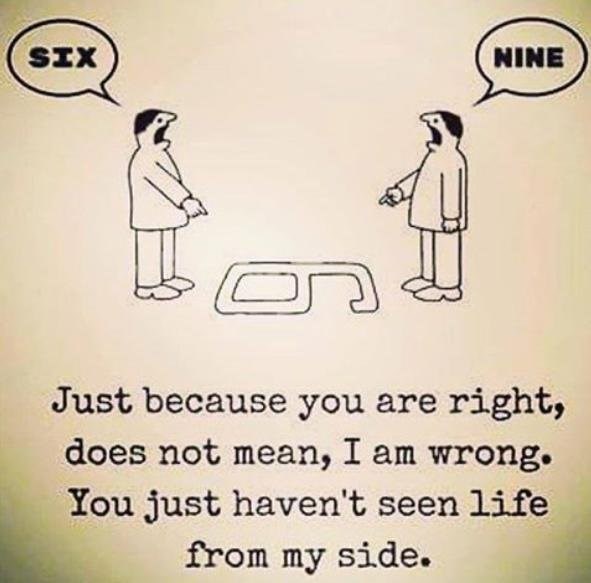It was the cookies that got me thinking: This. This is how we save our world.
There I was, talking to Allan Morgan about his experiences as a gay man and how they have led him to stage his one-man show PRIDE: for the Young Gay, the Un-Gay and the Jaded Queen in All of Us. His life experiences have often been dark and profoundly challenging; experiences that could have left him embittered and angry. But here, instead, is this kind and gracious man inviting everyone – gay and “un-gay” alike - to come and listen while he tells his story and bakes them chocolate chip cookies.
The image of that simple act of grace stuck with me.
It’s a stark contrast from the world I find myself living in. In real life, and even more dramatically on social media, anger and divisiveness have become pervasive, even among people who should in theory be allies. Our culture of “calling out” has led us into a spiral of shaming and finger-pointing that has become at least as toxic as the behaviour it was trying to fight in the first place.
(If you want a brilliant analysis of this phenomenon, read this piece by Loretta Ross, a black feminist reproductive justice activist in the U.S. She’s got decades of activism to draw on and she knows of what she speaks.)
The way it stands now, we’re so busy calling out the perceived “ists” and “phobes” among us that we’re missing a chance to direct our anger and our energy at the “isms.”
Yes, racism and sexism and ableism and homophobia and transphobia and all those other isms and phobias exist. Yes, there are ingrained structural inequities that mean white people, and men, and straight people, and cis people, and able-bodied people, carry a disproportionate amount of privilege. Yes, there are fundamental systemic injustices that mean a huge number of people from a variety of marginalized groups are living with oppression that those privileged people don’t always see or understand.
We should never stop drawing attention to all of that. We shouldn’t shy away from confronting bigotry and prejudice in all its forms. We should always speak out about the real and devastating effects of racism and sexism and ableism and homophobia and transphobia and every other ism and phobia that hurts people on a daily basis.
The issue is not whether we should speak out, but how.
We’ll never dismantle those structural and systemic inequities by just pointing our fingers at people on social media and labelling them with unflattering epithets. If anything, we may find our efforts having the opposite effect as we lose the cooperation and respect of not only our opponents but also our own allies.
We need to look at turning away from “calling out” to what Ross terms “calling in” – inviting people to understand what’s problematic about their viewpoints, but in a respectful and loving way, with dialogue and not with shaming.
For the record, I’m straight and white and cis and able-bodied; aside from the woman thing, I score high on all points of privilege. If you don’t share that privilege, I’m not going to tell you how to feel about the structural inequities and injustices you live with every damn day. If you’ve lived with marginalization and oppression your whole life, the last thing you want is some straight white chick coming and telling you to hold hands with your adversaries and sing Kumbayah.
I get that. I do.
But, if we want to get out of this toxic downward spiral we’re in right now, we all need to rethink the way we approach our fight against injustice and inequity. We need to figure out a way to turn our pointed fingers into extended hands; how to invite people into our conversation instead of shaming them out of it.
What social media, and call-out culture more broadly, has forgotten is that we are all more than the sums of our various oppressions and privileges. We are all human beings who, yes, have been shaped by our backgrounds and circumstances – but who can best be heard, and understood, and invited into the conversation, as unique individuals.
What we often fail to appreciate is that, as unique individuals, we all enter the conversation with different vocabularies. Weaponizing the vocabulary of the left (oppression, privilege, microaggression, fragility, intersectionality) to take down your opponents is a strategy destined for failure. More often than not, the person you’re throwing those words at has an entirely different understanding of what they mean and will just meet your volley of words with weaponized vocabulary of their own (liberal snowflake, virtue signaller, SJW).
Weaponizing words is an excellent skill, by the way. It can make you very clever in a social media argument. It can help you write compelling blog posts and catchy signs for protest marches. It can help you draft persuasive letters to newspaper editors and politicians. It can get you lots of likes and followers on social media. Those are all laudable things; if you’re advocating for change, you want to be able to persuade people to come along for the ride.
The ability to weaponize words is particularly useful in calling out people in positions of power when they’re using that power to harm the marginalized. It’s less useful when you’re dealing one-on-one with another individual who’s asking a question or expressing a point of view you find problematic. Poorly chosen words – or even well-chosen words, poorly used or poorly timed – can turn away a potential ally before you even have a chance to start a conversation.
Yes, white fragility is a thing, but calling that white woman you disagree with “fragile” probably doesn’t help her incline to hearing your point of view. Yes, misogyny is a thing, but calling that man who patronized you a “misogynist” right off the bat won’t help open his mind to hearing why what he said was problematic.
I’m reminded, often, of that meme that went around for awhile of the two people standing on either side of a numeral that was either a 6 or a 9, depending which side you were standing on.

These days, it seems to me that numeral is suspended over a deep chasm. There’s no bridge from one side to the other, just two people shouting across it, and neither the 6 nor the 9 are going to budge an inch. In fact, they’re both going to bring their friends over to pile on the other guy, because what’s a good shaming without an audience?
“Troll!” yells one side. “Virtue signaller!” yells the other. Everyone shouts, no one listens, and the volume just keeps going up and up and up.
Nothing’s ever going to change unless and until someone takes a new approach.
If you’re a clear 9, then what’s the best way to convince the 6er that you’re right? Should you slam him loudly and publicly for being a stupid "sixist" pig, thus garnering plenty of “hurrahs” from your friends and upping your social media cred with your allies? Or should you invite him over for cookies and show him the view from where you sit? Maybe when you set out a plank so he can safely cross the chasm between you, he’ll take that first step. And maybe then you can extend your hand to help him across. When you do, you can show him that the 6 he's been looking at all these years actually is a 9 because, from where you sit, you can clearly see the 8 and the 10 on either side of it – numbers that were blocked from his view until you made space in your world and showed them to him.
You know what? It’s really bloody unfair.
Because there’s a better than average chance that if Mr. 6 had just gotten out of his comfortable chair and looked around a little bit harder, or trimmed a few of those hedges that were blocking his line of sight, he’d have seen the 8 and the 10 for himself. But he didn’t, and he wasn’t about to because he saw no need to, so it took the bravery and the graciousness of the 9 side to show him the way.
Here’s the thing. White people and straight people and men and able-bodied people should all just suck it up and own their privilege and fight side by side with you (us) to dismantle injustice. You shouldn’t have to choose your words carefully or explain or extend any amount of compassion in order to make them (us) see truths that to you are blindingly obvious.
But, in this exceedingly imperfect world full of exceedingly imperfect people, sometimes that’s what has to happen. Because not everyone sits where you sit, and what’s obvious truth to you simply isn’t the same for everyone else.
Maybe, for you, it’s all too personal, too heavy. Maybe right now it’s too big of an ask to have you explain your life experience, yet again, to someone who doesn't get it. This is where allyship comes in. This is where those of us who hold more privilege can step up to start that conversation on behalf of those who can’t at this moment speak out for themselves.
But whichever of us stands up to speak, we need to remember to make space for compassion. And kindness. And acts of grace.
Because the simple truth of change is this: Sometimes we need to extend our hand even if the person we’re extending it to doesn’t deserve it.
Take Allan Morgan, inviting us all in to hear his story. We’re strangers. We haven’t earned the right to his trust and his respect. But he’s offering it to us – with cookies. That’s an act of bravery and graciousness we can all emulate, in ways big and small, every single day.
No, you don’t have to invite neo-Nazis over for dinner. But maybe start with that guy on Twitter, the one you love to fire your weaponized vocabulary at, and actually try to listen to the point he’s making, just this once. Extend a hand to offer him a home-baked cookie – metaphorical or literal – and share your story so he can see the world from where you sit.
Maybe, just maybe, you’ll find out he’s a human being too and there’s some common ground you can occupy, even if you don’t see eye-to-eye on the world and its problems.
Which isn’t to say you should stop being angry. Hell no.
If you’re not angry right now, you’re probably not paying attention. I mean, just to toss a few random facts out there, 1.3 million Canadian children are living in poverty, 335 people have been killed in mass shootings in the U.S. so far in 2019, far too many Indigenous communities don’t even have access to clean water, and in the now-immortal words of science icon Bill Nye, our planet is on fucking fire.
So anger? Hell yeah. Let’s be angry. Let’s roar and rant and rage until our voices are so loud that they finally drown out the injustices and inequities we’ve been fighting for too damn long. But let’s be angry together and direct our rage where it belongs – at the governments and corporations and institutions that have the power to effect change – and not at each other.
Our collective rage may just save the planet.
And our individual acts of grace? With those, we’ll save each other.



